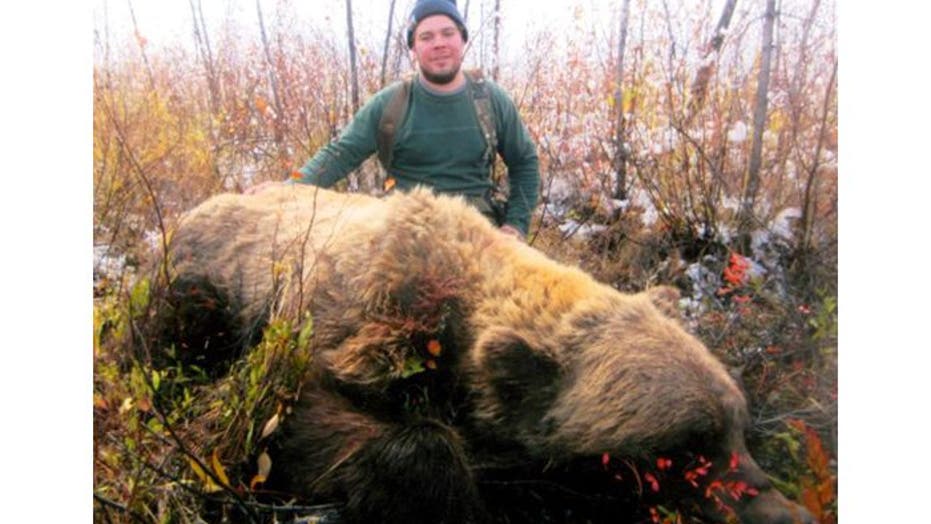Larry Fitzgerald and a pal were moose hunting near Fairbanks, Alaska, when they came across fresh bear tracks in the snow. Three hours later, the auto body man had taken down the grizzly that left the prints, an enormous bruin that stood nearly 9 feet tall and earned Fitzgerald a place in the record books.
Although Fitzgerald shot the bear last September, Boone and Crockett, which certifies hunting records, has only now determined the grizzly, with a skull measuring 27 and 6/16ths inches, is the biggest ever taken down by a hunter, and the second largest grizzly ever documented. Only a grizzly skull found by an Alaska taxidermist in 1976 was bigger than that of the bear Fitzgerald bagged.
[pullquote]
"I'm not really a trophy hunter, or anything," Fitzgerald, 35, told FoxNews.com. "But I guess it is kind of cool."
Fitzgerald brought down the bear from 20 yards, with one shot to the neck from his Sako 300 rifle. He said he and hunting buddy Justin Powell knew from the tracks he was on the trail of a massive grizzly, but only learned this week that he held a world record.
"We knew it was big," he said. "It was a rush."
Bears are scored based on skull length and width measurements, and Missouloa, Mont.-based Boone and Crockett trophy data is generally recognized as the standard. Conservationists use the data to monitor habitat, sustainable harvest objectives and adherence to fair-chase hunting rules.
Richard Hale, chairman of the Boone and Crockett Club's Records of North American Big Game committee, said it was unusual that such a massive grizzly would be taken near a a city.
"One would think that a relatively accessible area, with liberal bear-hunting regulations to keep populations in line with available habitat and food, would be the last place to find one of the largest grizzly bears on record," said Hale.
The Alaska Department of Fish and Game instituted grizzly hunting regulations to help balance and control the bears' preying on moose. Although baiting is allowed under the regulations, Fitzgerald stalked his trophy.
Grizzlies are currently federally protected in the Lower 48 states under the Endangered Species Act, but thriving populations have prompted regulators to consider de-listing them, said Hale.









































